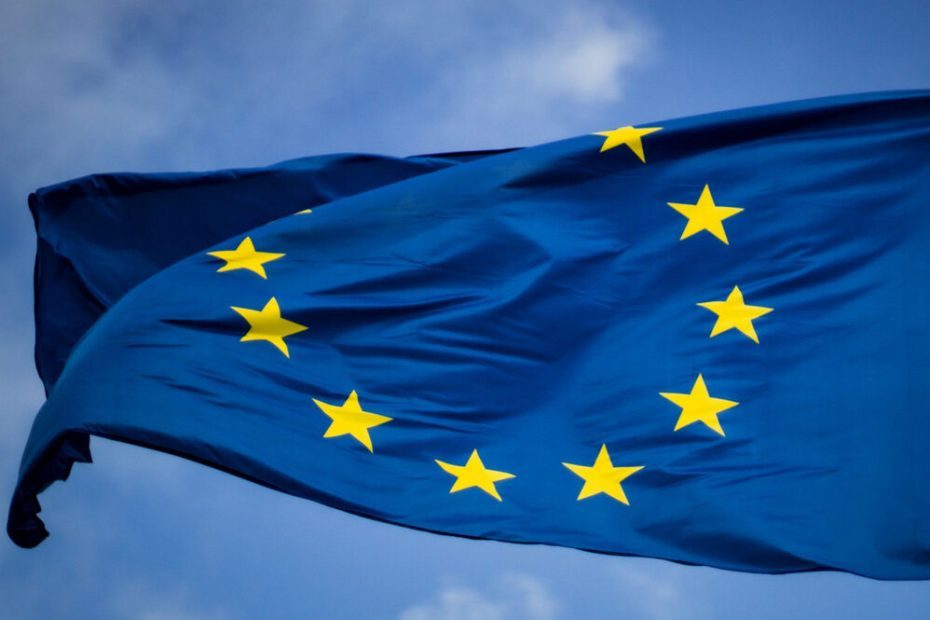Our daily life in the digital space is determined by American and increasingly Asian companies and platforms. So what about European digital independence and European sovereignty? Do we need more European global players like Google, Microsoft & Co. or can’t a European solution be designed differently? In this article, we would like to take a closer look at these and other questions.
What does Digital Independence mean?

Digital independence or digital sovereignty stands for the self-determination of societies, states, companies or individuals in the context of information technology. In concrete terms, this means being independent of non-European solutions, although this does not necessarily exclude the use of non-European services.
A look at the everyday life of most people in Europe is enough to show the dependence on American platforms: Most social networks are part of the Meta Group (Facebook, Instagram, Whatsapp), but LinkedIn, Twitter and TikTok are not European solutions either. E-commerce largely takes place via Amazon, end devices run Microsoft Windows, Android or Apple’s OS operating systems. The most widely used search engine is Google, and video streaming is largely done via Netflix – These are only the best-known examples! As the discussions around 5G technology or cloud computing show, the dependency exists not only on the individual level, but also in terms of digital infrastructure in Europe. [1]
The Political Context

Apart from economic implications of this dependency, the article mainly deals with the political consequences. In the context of free trade and globalization, the dependency on global, non-European IT corporations was hardly perceived as a problem for a long time. It was not until the publication of far-reaching cases of industrial espionage and political interference by foreign companies and intelligence services that a widespread awareness of the negative consequences of this dependence emerged. [2]
Technological Dependence
“Foreign digital technologies are in a dominant position.”
This is the conclusion of a new study by the Konrad Adenauer Foundation, among others, which attempts to quantify the degree of digital dependency for some countries by means of the so-called Digital Dependency Index. The index differentiates between autonomy in the trade of information goods, infrastructure independence and patents. While trade is relatively less dependent on Europe, digital infrastructure and patents are very dependent on non-European solutions. What is interesting here is that this situation has hardly changed in recent years. Although awareness of the problem of digital sovereignty has increased, the level of dependency has remained consistently high in recent years. The relative gap to the USA and China even continues to increase. [3]
Non-European Data Transfer & Data Protection
The dependence on non-European technology and infrastructure gives rise, among other things, to massive problems for data protection, privacy and, ultimately, our democratic structures. The use of non-European solutions is often accompanied by a lack of data control. As has already been proven several times, it cannot be ruled out that private data of individuals, companies or even political decision-makers are stored and processed in servers abroad. [4, 5]
The Road to European Digital Autonomy

The European GDPR
Following on from the transfer of data abroad, the role of the European General Data Protection Regulation (GDPR) must be addressed. The idea of the GDPR arose in the context of the debates surrounding digital European sovereignty. This follows the intention of creating a uniform data protection regime throughout Europe. This means that data protection should be regulated in a legally binding manner for all EU member states and that it should not be possible, for example, to undermine data protection in the EU through lobbying in individual member states. With regard to the GDPR, the European Court of Justice (ECJ) is of the opinion that a transfer of personal data to non-European countries is only permissible if similarly high data protection standards apply in the respective country as in the EU. Accordingly, the USA does not meet these requirements. The problem now is a situation in which there is no comparable European digital alternative to a non-European solution that does not comply with data protection standards. In such cases, there is always a disregard for legal requirements through the use of such platforms – An obvious problem of digital dependencies. In addition, the political interference surrounding the Brexit and Facebook or Cambridge Analytica have clearly shown how important compliance with European data protection standards is for our society and democracy. [6]
Major European Projects: GAIA-X
In many cases, a possible solution for more digital sovereignty in Europe is the development of its own big players. Instead of Facebook, Amazon, Google and others, European corporations should be established and used throughout Europe and globally. The best-known project at present is probably GAIA-X. Within the framework of GAIA-X, an innovative data infrastructure is to be created that offers legally secure open source cloud solutions for industry, science and administration in Europe. However, it should be noted that non-European cloud providers such as Google, Microsoft and Amazon are actively involved in the development of the project. [7]
Coexistence & Competition of Small and Medium-Sized Enterprises
In addition to building up our own monopolistic groups, there is also the possibility of supporting a coexistence of a large number of companies in Europe in order to promote free competition. In many areas of everyday digital life, this is certainly sensible and desirable, whereas other sectors need precisely the network effects to provide added value for society. To take a simple example: Social networks are only useful if as many acquaintances and friends as possible are also represented in them. In order to link such opposites, there are already various considerations, first and foremost interoperability. European institutions are currently working on a draft law that would require messenger services to be open to other services in order to enable cross-vendor communication.
It must therefore be considered on an individual basis whether a large player is actually needed or whether a large number of providers would not be a better solution. In any case, it is important first of all to recognize European dependence on non-European solutions and to perceive it as a problem with both economic and political implications, while at the same time strengthening privacy. China, for example, has managed in recent years to break away more and more from the dependence on American companies through intensive research, market intervention and the establishment of its own corporations. Nevertheless, this has obviously not led to an improvement in the privacy and data protection of the population.
Sources
[1] Klein, Bettina (2020): EU will Huawei nicht ausschließen. Online unter: https://www.deutschlandfunk.de/ [29.01.2020].
[2] Lütticke, Marcus (2013): Die Geschichte der NSA-Affäre. Online unter: https://www.dw.com/ [03.11.2013].
[3] Mayer, Maximilian/Lu, Yen-Chi (2022): Europa hat die Konsequenzen seiner digitalen Abhängigkeit noch kaum erkannt. Online unter: https://www.kas.de/.
[4] Pakalski, Ingo (2022): Schulen dürfen Teams bald nicht mehr nutzen. Online unter: https://www.golem.de/ [27.06.2022].
[5] Neuerer, Dietmar (2021): Microsoft Teams, Zoom, WebEx – Berliner Behörde warnt vor gängigen Videosystemem. Online unter: https://www.handelsblatt.com/ [18.02.2021].
[6] Ermert, Monika (2022): Interoperabilität der Messenger – EU und IETF gegen babylonische Verwirrung. Online unter: https://www.heise.de/ [31.05.2022].
[7] Bundesministerium für Wirtschaft und Energie (2019): Das Projekt GAIA-X. Online unter: https://www.bmwk.de/
Pascal founded ViOffice together with Jan in the fall of 2020. He mainly takes care of marketing, finance and sales. After his degrees in political science, economics and applied statistics, he continues to work in scientific research. With ViOffice, he wants to provide access to secure software from Europe for everyone and especially support non-profit associations in their digitalization.


